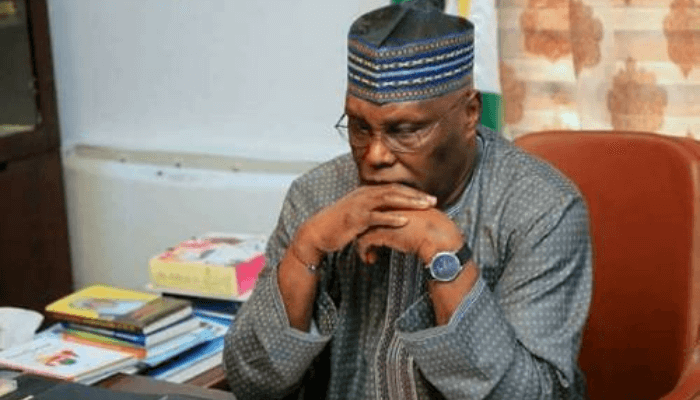
Atiku, in a paper delivered at the AUN as part of activities marking this year’s celebration of the institution’s founder day, had revealed his frustrations with the management of the university that he founded for not being able to get the institution firmly rooted on its feet.
Founder’s Day, in the American style, is an important tradition where an institution unites to honor those who have contributed to the university’s rich history and its founding.
Every year, the AUN rolls out its drum to commemorate its Founder’s Day on the birthday of the former Vice President, who founded the institution in 2004.
However, at this year’s celebrations, Atiku revealed the real motives behind his establishment of the AUN.
He said his motive for establishing the university was not to gain political office but to give back to a society that has given so much to him.
Speaking at an event in his paper entitled, “AUN in the Age of Socio-Economic Crisis and Emerging Disruptive Technologies,” Atiku had made a veiled reference to his frustrations with the one too many leadership transitions at the institution over the course of the last 19 years and the inability of managers who had presided over the management of the institution fully grasping his vision for the institution and effectively piloting the university as a truly developmental university.
Atiku said, “You cannot realise the vision of a still small and young institution without focus, without being organized, without patience, without attention to detail, without persistence, and the desire to overcome obstacles in your way. And you cannot realise that vision with reckless management of resources, arbitrariness in decision making, and unfairness and inequity in the treatment of faculty, staff, and students. As a result, continuity and fidelity to rules and procedures haven’t always been maintained in the attempts at realizing the founding vision and pursuit of the university’s goals. There is, therefore, an urgent need to return to basics, to the original vision.”
“After 19 years, AUN ought to be able to stand on its feet. I have neither asked for nor received a kobo from you since inception and have no plans to do so in the future. All the investments that my friends and I have made and continue to make here are intended to see the university grow and serve humanity.
“AUN is a not-for-profit institution. However, that does not mean that you should not generate surpluses. You should be self-sustaining and generate surpluses to be plowed back into the development of the institution to serve a greater number of people – students, employees, and the wider community.
“Unfortunately, as I have been told, some see AUN the way some Nigerians see public institutions – as a place they take from but not to put in. Well, that’s a mistake.”
He, however, gave a forewarning of the changing educational landscape, noting that only institutions that had the financial wherewithal and were positioned for the disruption that technologies are likely to bring to education in this age of Artificial intelligence are best suited to survive.
He explained that the transition occasioned by emerging disruptive technologies in the age of artificial intelligence was in the context of Nigeria, adding, “Coinciding with deepening socio-economic crisis limiting the financial capacity of institutions and the country to acquire those very technologies, failure of which would put us further back in the race to socio-economic advancement.”
In his paper, Atiku asked, “How are you preparing for them, and how is Nigeria preparing for them? What about artificial intelligence’s potential impact on teaching and learning, especially Large Language Models such as ChatGPT? Are you prepared for that?”
He, however, expressed cautious optimism about AUN’s readiness, noting that the institution, which ought to be on its feet, had been afflicted with the same kind of malady that had afflicted the Nigerian state, which he called a “mistaken” philosophy.





